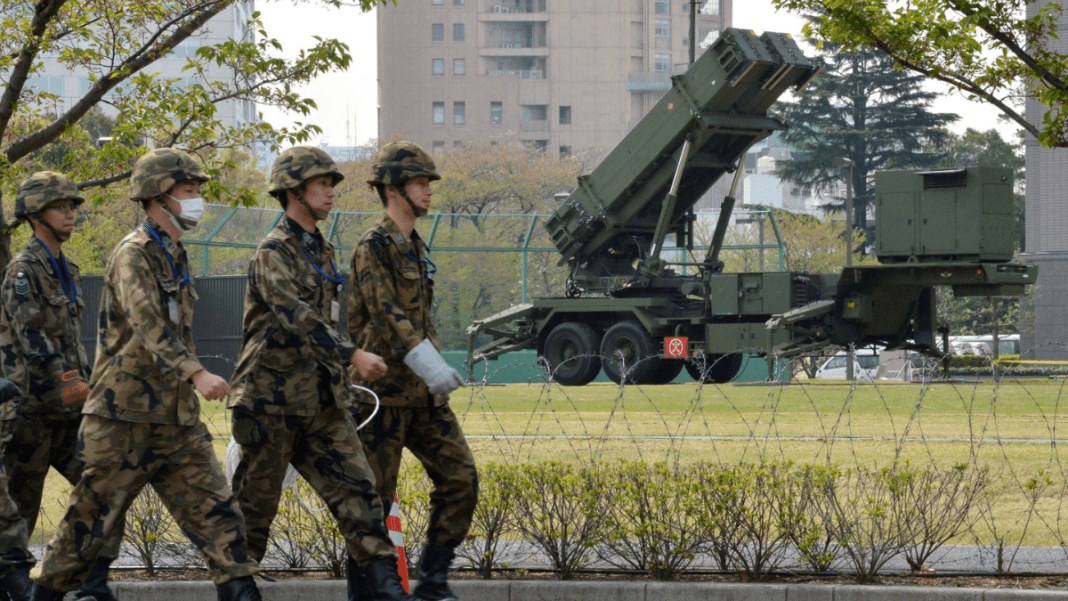China has raised strong alarms after reports revealed that Japan carried out a missile export of domestically produced Patriot interceptors to the United States. Chinese analysts described the move as an “extremely dangerous signal”, warning that Japan’s decision could create new tensions in East Asia.
Rising Concerns as Japan Steps Into Missile Export Activities
Japanese media reported that these Patriot missiles were sent to the United States so Washington could refill its own supplies while supporting Ukraine in its war against Russia. As a result, the shipment marks a major turning point for Japan, which has spent decades limiting its military role and avoiding the missile export of lethal weapons.
For many years, Japan’s Three Principles on Transfer of Defence Equipment and Technology placed strict limits on arms exports. These rules were created to prevent Japan from sending weapons abroad and to maintain its post-war pacifist image. However, in recent years, Japan has made several changes to ease these restrictions.
One of the biggest changes came in 2023 when Japan revised its policies to allow the missile export of Patriot interceptor systems to the United States. This amendment opened the door for the shipment that has now drawn sharp criticism from Beijing.
The Patriot Advanced Capability-3 interceptors are high-technology surface-to-air missiles used to shoot down enemy projectiles. For decades, exporting such weapons would have been unthinkable under Japan’s old rules. The new decision shows a major shift in Tokyo’s approach to military cooperation and missile export policy.
Why China Says Japan’s Move Is ‘Extremely Dangerous’
Chinese commentators say Japan is showing a clear lack of restraint in its weapons exports. They argue that the recent missile export to the United States is not an isolated decision but a sign that Japan may be preparing to expand its military role beyond its traditional limits. According to Chinese analysts, sending Patriot missiles to the US could become a model for Japan to export more lethal weapons to other countries in the future.
They believe this move may create a ripple effect across Asia, increasing worries among neighboring countries and adding uncertainty to regional security. Some Chinese experts also say the missile export gives Japan an opportunity to strengthen its weapons industry by learning from American technology and improving its own manufacturing capabilities.
China slaps new ban on Japanese seafood — diplomatic clash over Taiwan sparks trade showdown
The timing of the shipment has intensified already strained relations between China and Japan. The two countries have been in conflict over political and security issues for years, with China accusing Japan of trying to expand its military powers and move away from its long-standing pacifist stance.
Tensions grew further after Japan’s prime minister said that Japan could treat any forceful action against Taiwan as a “survival-threatening situation”, a label that would allow Tokyo to deploy its Self-Defence Forces. China demanded that Japan withdraw the remark, but Japan refused. Recent talks in Beijing failed to ease tensions, and China reportedly responded by banning Japanese seafood imports and suspending cultural and government exchanges.
Chinese analysts argue that Japan’s position on Taiwan, combined with its latest missile export, signals a shift toward a more assertive military posture. China has warned that any Japanese involvement in a Taiwan conflict would trigger strong countermeasures.
Japan’s Expanding Defence Role and Its Growing Missile Export Policy
Chinese observers say Japan may be using the missile export to the United States as a strategic tool for its long-term defense goals. They believe Japan wants to strengthen its own military industry by working closely with the US. By producing advanced systems like Patriot missiles, Japan can study high-level American technology and possibly build improved versions for its own defense forces.
Some analysts also say Japan hopes the missile export policies will help it build political influence in the region. By supplying weapons to friendly countries such as the Philippines or Australia, Japan could expand its strategic partnerships and increase its importance in regional security discussions.
Hostile patrols at Senkaku — China storms island waters moments after Japan’s Taiwan stand
Japan has recently made several announcements showing its growing focus on national defense. The country’s new defense minister has said he will continue encouraging arms exports. Japan’s prime minister also said she aims to raise Japan’s defense spending to 2 percent of its GDP by March, much earlier than the original timeline set by past governments.
These steps reflect the biggest shift in Japan’s defense direction in decades and highlight why China views the country’s missile export policies as alarming.

